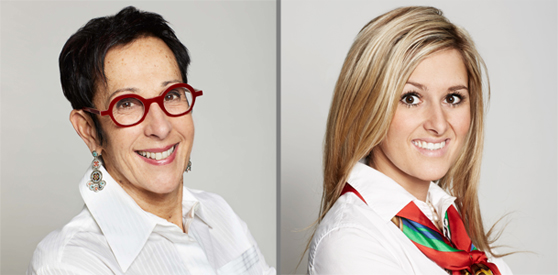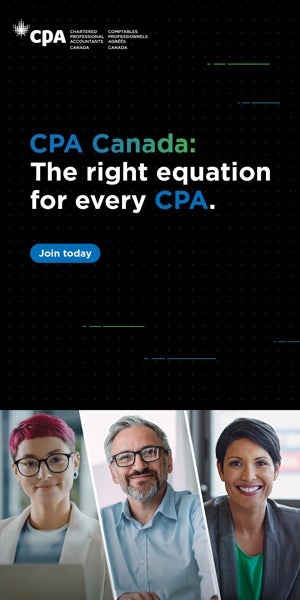Are there limits to a professional’s freedom of expression in his or her personal life?

Christiane Brizard and Victoria Lemieux-Brown of Langlois Lawyers on the case of a Canadian accountant disciplined for posting conspiracy theories on Facebook
 |
Christiane Brizard is a partner in the Langlois Lawyers office of Montréal. Victoria Lemieux-Brown is a lawyer in Langlois Lawyers’ Quebec City office. |
Professionals have ethical obligations and must respect them in all spheres of their lives, even in their private lives. While they enjoy the protection of the same constitutional rights and freedoms as all citizens, these rights and freedoms are not absolute and are circumscribed by the professional's ethical obligations.
In Comptables professionnels agréés(Ordre des) c. Pilon,1 the respondent was found guilty of ethical violations, notwithstanding his Charter right to freedom of expression, for publishing conspiracy theory videos on social media while he was a member of the Quebec Order of Chartered Professional Accountants ("Quebec CPA Order").
The facts
The respondent Daniel Pilon ("the Respondent" or "Mr. Pilon"), while he was a chartered professional accountant, had a Facebook page with the URL danielpiloncmacpa. This Facebook page was named Daniel Pilon, CPA, chroniqueur financier (in English: Daniel Pilon, CPA, Financial Commentator) and was later changed to Daniel Pilon, BAA, chroniqueur financier.
Through this Facebook page, the Respondent posted various conspiracy theory videos in which he stated, among other things, that China created the coronavirus while it already had the vaccine, that the COVID-19 crisis would generate a lot of money for the banks, and that wealthy people would manipulate the banks. He also reported in the video clips that Bill Gates invested in the COVID-19 vaccine and that "pharmaceutical companies that develop vaccines may be tempted to create diseases in order to sell vaccines to various national governments." He also described Mr. Gates, Dr. Fauci (Director of the U.S. NIAID and the top U.S. infectious diseases expert) and Tedros Adhanom (Director-General of the World Health Organization) as bandits.
In his Facebook posts, Mr. Pilon sometimes presented himself as an accountant or CPA, and other times as a freethinker or financial commentator. On a few occasions, he indicated that he would be resigning from the roll of the Quebec CPA Order; in reality, he did not submit his resignation until some time later.
In the video clips, he made comments about the Assistant Syndic of the Order, mentioning in particular "that the problem with syndics is that no one 'checks' them and they have power trips," "that the Assistant Syndic doesn't like him, that this is apparent in the tone of her letter, and that she is out to get him" or "that he does not need an Order to make him sick." Through his Facebook posts, he also made intimidating comments regarding the complainant who had approached the Syndic of the CPA Order.
The videos posted by the Respondent on his Facebook page have been viewed tens, if not hundreds, of thousands of times, and his page has no fewer than 27,000 subscribers.
The complaint
The Assistant Syndic filed a disciplinary complaint against Mr. Pilon comprising three violations.
Under the first count ("Count #1"), she accused him of "failing to act with dignity and avoid any method or attitude that is likely to damage the profession's good reputation by making comments that lacked rigour, moderation, objectivity and professionalism, in publications or broadcasts on various digital platforms, including on his 'Daniel Pilon, CPA, chroniqueur libre-penseur' Facebook page," contrary to section 5 of the Code of Ethics of Chartered Professional Accountants2 (the "Code of Ethics") and section 59.2 of the Professional Code3 (the "Code"). Count #1 consists of 12 paragraphs.
The second count ("Count #2") alleges that the Respondent intimidated or attempted to intimidate the complainant through the videos he posted on Facebook, in violation of section 60.1 of the Code of Ethics and sections 59.2 and 122 of the Code.
Finally, the third count of the complaint ("Count #3") is one of obstruction of the work of the Assistant Syndic of the Order, contrary to section 60 of the Code of Ethics and sections 114 and 122 of the Code.
 |
A former chartered professional accountant who posted conspiracy theories on Facebook discovered that, while freedom of expression is a constitutional right, it is not an absolute right.. (Image by Firmbee from Pixabay.) |
The decision4
The Respondent entered a guilty plea to Count #1(a) and Count #3(c) of the complaint but pleaded not guilty to all other paragraphs of the counts of the disciplinary complaint.
In its decision, the Disciplinary Council (the "Council") pointed out that the laws governing the organization of professional orders are laws of public order that must be interpreted in such a way that the interests of the public take precedence over private interests.5 It pointed out that disciplinary responsibility is based on acts that the professional commits in the practice of his or her profession or that may be perceived as such by the public. For there to be ethical misconduct, it must be related to the practice of the profession.6 However, misconduct may occur in a professional's private life and nonetheless be sufficiently related to the practice of the profession so as to constitute a disciplinary offence against the dignity of the profession.
Count #1
Under Count #1, the complainant alleged that the Respondent was confusing the public about his designation as a Chartered Professional Accountant and that he was making unverified claims. For his part, the Respondent argued that it was his right to freedom of expression to express himself as a blogger, a constitutional right guaranteed by the Canadian Charter.7
To determine whether the Respondent's comments on his Facebook page undermined the profession's dignity and reputation, the Council weighed the Order's legislative and regulatory objectives against the Respondent's freedom of expression.8
Based on the decision of the Supreme Court of Canada in Doré v. Barreau du Québec,9 the Council stated that a Chartered Professional Accountant may freely express his opinions but that he must do so in accordance with his professional and ethical standards, that is, with moderation and dignity.
In that decision, the Supreme Court stated the following with respect to the balancing of ethical obligations against freedom of expression:
[63] But in dealing with the appropriate boundaries of civility, the severity of the conduct must be interpreted in light of the expressive rights guaranteed by the Charter, and, in particular, the public benefit in ensuring the right of lawyers to express themselves about the justice system in general and judges in particular (MacKenzie, at p. 26-1; R. v. Kopyto (1987), 1987 CanLII 176 (ON CA), 62 O.R. (2d) 449 (C.A.); and Attorney-General v. Times Newspapers Ltd., [1974] A.C. 273. [...]
[65] Proper respect for these expressive rights may involve disciplinary bodies tolerating a degree of discordant criticism. As the Ontario Court of Appeal observed in a different context in Kopyto, the fact that a lawyer is criticizing a judge, a tenured and independent participant in the justice system, may raise, not lower, the threshold for limiting a lawyer's expressive rights under the Charter. This does not by any means argue for an unlimited right on the part of lawyers to breach the legitimate public expectation that they will behave with civility.
[66] We are, in other words, balancing the fundamental importance of open, and even forceful, criticism of our public institutions with the need to ensure civility in the profession. Disciplinary bodies must therefore demonstrate that they have given due regard to the importance of the expressive rights at issue, both in light of an individual lawyer's right to expression and the public's interest in open discussion. As with all disciplinary decisions, this balancing is a fact-dependent and discretionary exercise.
In this case, however, since the URL of the Respondent's Facebook page is danielpiloncmacpa and he often presented himself as a CPA, the Council concluded that there was a connection to the practice of the profession.
Secondly, the Council analyzed Mr. Pilon's comments regarding COVID-19 in light of the public's reasonable expectations of the CPA profession. To determine whether these comments constituted acts derogatory to the honour and dignity of the profession, the Council analyzed the following elements:
- Whether the Respondent's comments were made in good faith or were based on reasonable grounds.
- Whether they are the type of comments that the general public is entitled to expect from a CPA.
- Whether they are likely to cause a loss of public confidence in the profession.
- The manner in which they were made and their frequency.
- The public's reaction, if any.10
In light of the above criteria, the Council found that the Respondent's comments were not based on reasonable grounds, and it therefore found him guilty. It found his comments to be shocking and outrageous, lacking any scientific basis, and based on suppositions and speculation arising from connections that the Respondent attempted to establish. Freedom of expression cannot prevent a disciplinary council from finding a professional guilty of a disciplinary offence once a link to the practice of the profession is demonstrated.
Count #2
On this count, the Council acquitted the Respondent of intimidating or attempting to intimidate the complainant because there was no evidence that the complainant felt threatened, harassed or intimidated. However, the Council found him guilty under sections 59.2 and 122 of the Code for retaliating against her through comments in his Facebook videos.11
Count #3
The Council found the Respondent guilty of intimidating the Assistant Syndic by discussing a confidential disciplinary investigation on Facebook and by copying officers of the Order on his response to one of her letters.
Conclusion
Thus, while freedom of expression is a constitutional right, it is not an absolute right. This freedom can be limited to protect other values, such as civility of discussion, professional courtesy, the dignity of the profession and public trust. The courts will analyze what a professional says on a case-by-case basis in light of the values of a democratic society and the values of the profession. Codes of ethics often specifically state that a professional must act with moderation, civility and dignity. Thus, for example, if a professional acts as a blogger, he must show moderation in his comments to avoid offending the dignity of the profession or the order to which he belongs. He may share his opinions, but they must be marked by moderation and be based on reasonable grounds, and they must not undermine public confidence in the profession.
Footnotes
1 2020 QCCDCPA 40.
2 CQLR, c. C-48.1, r. 6.
3 CQLR, c. C-26.
4 This is the decision on guilt. A hearing must be held to determine the penalty.
5 Para. 252 of the decision.
6 Para. 255 of the decision.
7 Constitution Act, 1982, Schedule B to the Canada Act 1982 (UK), 1982, c. 11, s. 2(b).
8 Para. 262 of the decision.
9 2012 SCC 12.
10 Para. 275 of the decision.
11 Since multiple convictions are prohibited, the Council ordered a conditional stay of proceedings under section 59.2 of the Code.
Christiane Brizard is a partner in the Langlois Lawyers office of Montréal. Victoria Lemieux-Brown is a lawyer in Langlois Lawyers’ Quebec City office. Top image from Rawpixel.











(0) Comments